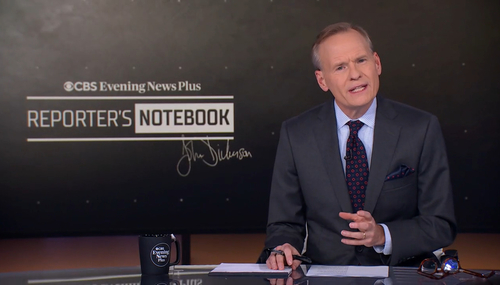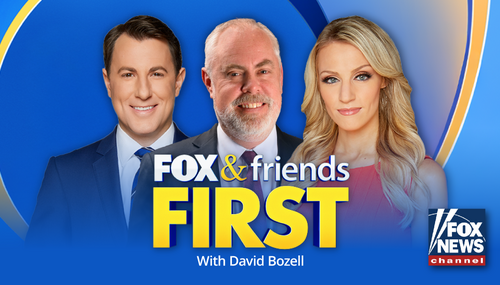Times columnist David Brooks blew a hole into the left-wing myth of Ronald Reagan appealing to Southern racists to kick off his 1980 presidential campaign. What makes Brooks's Friday column doubly valuable -- it's a bank-shot sinking of fellow Times columnist and Republican-hater Paul Krugman.
Brooks's "History and Calumny" defends then-candidate Ronald Reagan from leftists like Krugman who have long slurred his 1980 campaign kick-off in Philadelphia, Miss. as a racist appeal.
"Today, I'm going to write about a slur. It's a distortion that's been around for a while, but has spread like a weed over the past few months. It was concocted for partisan reasons: to flatter the prejudices of one side, to demonize the other and to simplify a complicated reality into a political nursery tale.
"The distortion concerns a speech Ronald Reagan gave during the 1980 campaign in Philadelphia, Miss., which is where three civil rights workers had been murdered 16 years earlier. An increasing number of left-wing commentators assert that Reagan kicked off his 1980 presidential campaign with a states' rights speech in Philadelphia to send a signal to white racists that he was on their side. The speech is taken as proof that the Republican majority was built on racism.
"The truth is more complicated."
Reagan did visit the Neshoba County Fair, a common stomping ground for politicians, on August 3, 1980, but stuck mostly to talking about the failures of President Jimmy Carter, with one line about states rights. (Strangely, back in 1980 the Times covered Reagan's appearance without mentioning the three slain civil rights workers.) Reagan then went to New York and spoke to the National Urban League and as Brooks showed in detail, dedicated much of his first campaign week to making appeals to blacks.
Brooks concluded:
"But still the slur spreads. It's spread by people who, before making one of the most heinous charges imaginable, couldn’t even take 10 minutes to look at the evidence. It posits that there was a master conspiracy to play on the alleged Klan-like prejudices of American voters, when there is no evidence of that conspiracy. And, of course, in a partisan age there are always people eager to believe this stuff."
Hmm. Whoever could Brooks be talking about?
From Paul Krugman's column of September 24, 2007:
"Republican politicians, who understand quite well that the G.O.P.'s national success since the 1970s owes everything to the partisan switch of Southern whites, have tacitly acknowledged this reality. Since the days of Gerald Ford, just about every Republican presidential campaign has included some symbolic gesture of approval for good old-fashioned racism.
"Thus Ronald Reagan, who began his political career by campaigning against California's Fair Housing Act, started his 1980 campaign with a speech supporting states' rights delivered just outside Philadelphia, Miss., where three civil rights workers were murdered. In 2000, Mr. Bush made a pilgrimage to Bob Jones University, famed at the time for its ban on interracial dating."
Times Watch wasn't the only outlet to pick up on David Brooks's stealth debunking of Krugman. Here's an excerpt from journalist Timothy Noah's post on Slate Friday night, "Decoding David Brooks."
"There is an unwritten rule at the New York Times that forbids its op-ed columnists to attack one another in print. It's a holdover from a much stuffier era in the paper's history, and one can appreciate the sentiment behind it. An op-ed page whose columnists routinely denounced one another would create the impression of a newspaper more interested in arguing with itself than in engaging the world outside its walls. The example most frequently cited is the Village Voice of the 1960s and 1970s. A more contemporary example would be the blogosphere."
….
"I remembered that hard lesson while reading David Brooks' column, "History and Calumny," in the Nov. 9 New York Times . 'Today I'm going to write about a slur,' Brooks begins. Although this 'distortion' has been around for many years, it has 'spread like a weed over the past few months.' It is 'spread by people who, before making one of the most heinous charges imaginable, couldn't even take 10 minutes to look at the evidence.'
"People? Who are these people? Brooks doesn't say. He scrupulously cites three written sources -- a 1980 Washington Post story by Lou Cannon; a June 2004 post by Kevin Drum on the Washington Monthly 's Web site; and an Oct. 2007 post by Bruce Bartlett on the Talking Points Memo Web site -- but these are all accounts refuting the dastardly smear. These are the good guys . Who are the bad guys ? Calumny doesn't spread itself. What wascally wabbit is wesponsible? Brooks won't say.
"It's Paul Krugman."
Noah went on to cite recent columns by Krugman (and fellow liberal columnist Bob Herbert) that bring up the Philadelphia, Miss. Incident. Noah also noted Krugman's barely-veiled online response to Brooks.
"So there's a campaign on to exonerate Ronald Reagan from the charge that he deliberately made use of Nixon's Southern strategy. When he went to Philadelphia, Mississippi, in 1980, the town where the civil rights workers had been murdered, and declared that 'I believe in states' rights,' he didn't mean to signal support for white racists. It was all just an innocent mistake."




